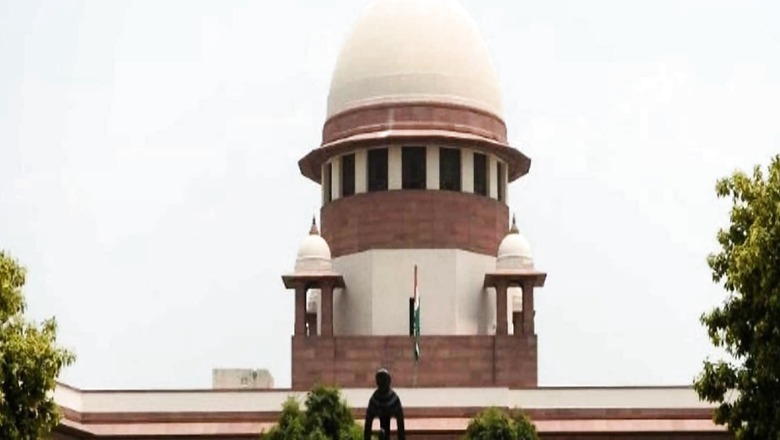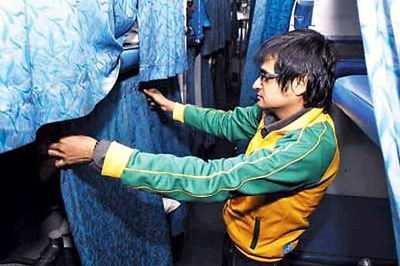Passage of Bill Without Debate in Parliament to Reverse Verdict on Tribunals is 'Serious Issue' : SC

views
The Supreme Court Monday termed as a “serious issue” the passage of Bill on tribunals with the provisions, struck down earlier, without any debate in Parliament. The court granted 10 days time to the Centre to make appointments in quasi-judicial panels facing severe crunch of presiding officers, judicial and technical members.
A bench comprising Chief Justice N V Ramana and Justices Surya Kant and Aniruddha Bose was very critical of the passage of the Tribunals Reforms Bill, 2021 without debate and attributing sufficient reasons justifying the need to reverse the apex courters rulings.
The law pertains to terms and conditions for the service and tenure of members of various tribunals and the fresh law revives some of the provisions struck down by a bench headed by Justice L N Rao recently on pleas including the one filed by Madras Bar Association.
“We have seen two days back as to how what was struck down by this court has again come back. I do not think any debate has taken place in Parliament. No reason has been given. We have absolutely no problem with the Parliament making laws. Parliament has the right to make any law. But at least we must know what are the reasons for the Government to introduce this Bill again after the striking down of the Ordinance. Nothing is there. I read the newspapers that and from the Finance Ministers, there is only one word that the court has not struck down the Ordinance on constitutionality, the CJI observed while posting the matter for August 31.
The observations assume importance in view of the fact that the CJI, while speaking at the 75th Independence Day function organised by the Supreme Court Bar Association, had flagged the same issue saying that the law-making process in the country is in a “sorry state of affairs” as there was lack of debates in Parliament leading to absence of clarity and a “lot of gaps and ambiguity” in the legislations.
At the outset, the CJI himself read a few paragraphs, containing critical observations against the government’s approach on tribunals, from a judgement rendered by a bench headed by Justice L N Rao.
“…We have noticed a disturbing trend of the Government not implementing the directions issued by this Court. To ensure that the Tribunals should not function as another department under the control of the executive, repeated directions have been issued which have gone unheeded forcing the Petitioner to approach this Court time and again. It is high time that we put an end to this practice…,” the CJI said, quoting the judgement. Then the bench expressed unhappiness over the lack of debate in Parliament in reversing the verdict and lack of reasoning for doing it.
Justice Ramana then read out the statement of the Minister in Parliament and said that it had been told that the “The Judiciary has not struck it (the Ordinance) down on constitutionality. It has only raised certain questions on some points. The primacy of the legislature to make laws is as important as the independence of the judiciary. We are here to make laws…’. “This was the debate and the reasons accorded in Parliament. This is a serious issue.”
“What are we to understand from this Bill and Act? Tribunals have to be continued or have to be closed? These are the only two issues that have to be dealt with ultimately,” the bench said, asking that the government show it the note prepared by the ministry for introducing the Bill.
Solicitor General Tushar Mehta said, “my answer can never be negative when something falls from Your Lordships. But now that the Bill has become an Act, it may not be possible for me to respond right now, as the Parliament has considered something proper to implement it in its wisdom.”
On the issue of filling up number of vacancies in tribunals, the bench noted the assurance of Mehta and said in its order that appointments are underway.
“We are granting another 10 days to the government. We clarify that the pendency of these matters should not come in the way of appointment of members to Tribunals. The bench raised issue of vacancies in tribunals and lack of steps taken to fill them by saying We have no information that since the last hearing, any appointments have been made.” Mehta said he has got the instructions to say that some appointments have been made in the Central Administrative Tribunals (CAT) and sought time for making the appointments.
The bench asked the Centre to make as many as possible appointments in 10 days saying different tribunals that are on verge of becoming defunct. The CJI, who on August 6, had given the details of vacancies in various tribunals, said that the appointments are always under process.
“I will tell you the meaning of ‘appointment process’. For the last one year and four months, whenever we ask, we are told that it is under process, under process, under process. It has no meaning. We will give you 10 days finally and we will hear the after and let us hope you will clear appointments as much as possible by then”, he said. The bench had given details of pending vacancies in 15 quasi-judicial bodies such as Debt Recovery Tribunals (DRTs), DRAT, Securities Appellate Tribunal, TDSAT, NCLT and NCLAT.
There are 19 vacant positions of presiding officers or the chairman in these tribunals and besides them, 110 and 111 posts of judicial and technical members respectively are vacant, the bench said. Mehta said Attorney General K K Venugopal has been dealing with the issues and he may be better equipped to answer.
Read all the Latest News, Breaking News and Assembly Elections Live Updates here.



















Comments
0 comment